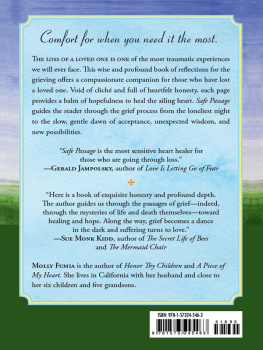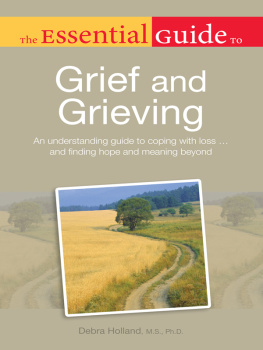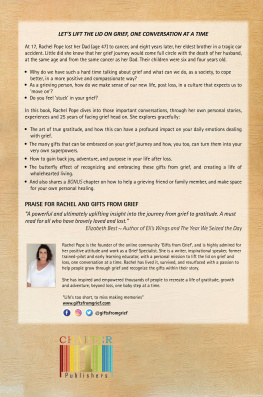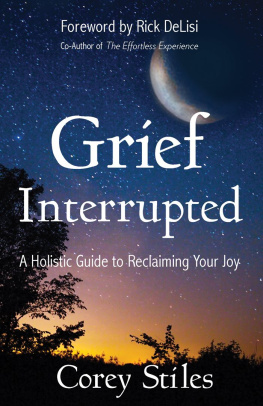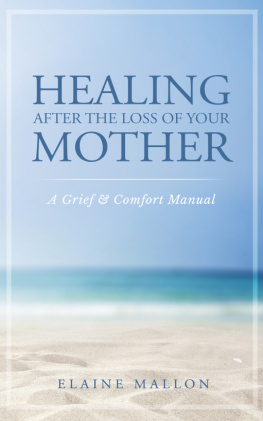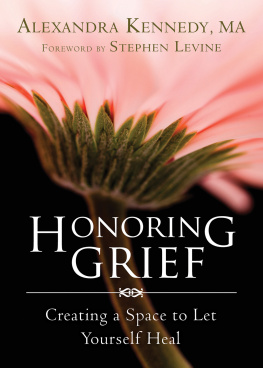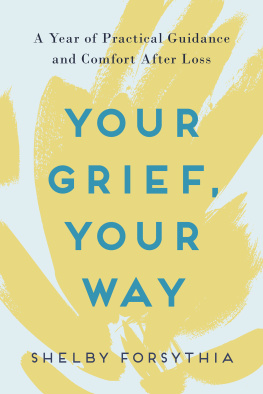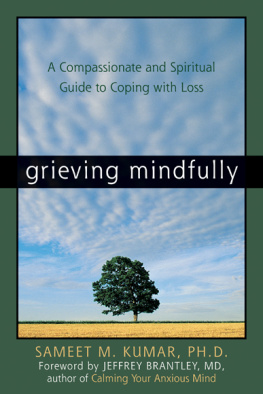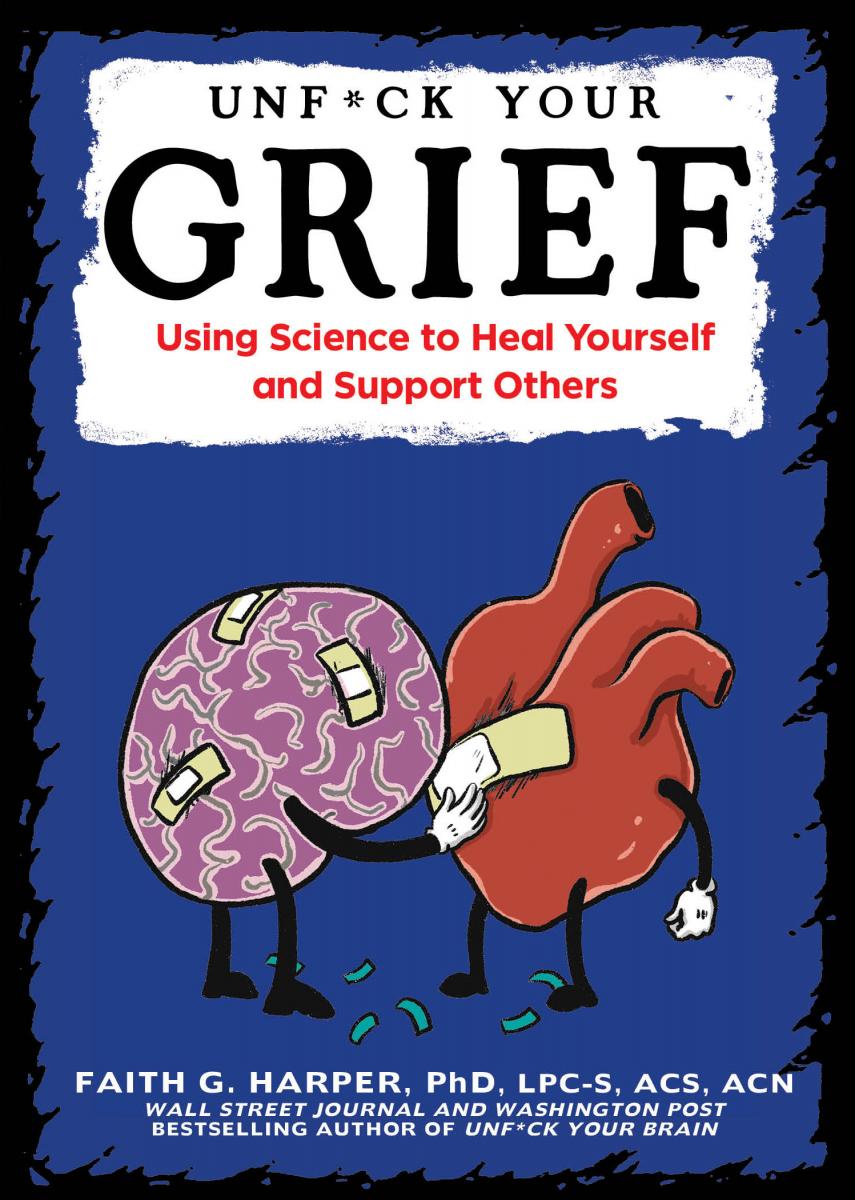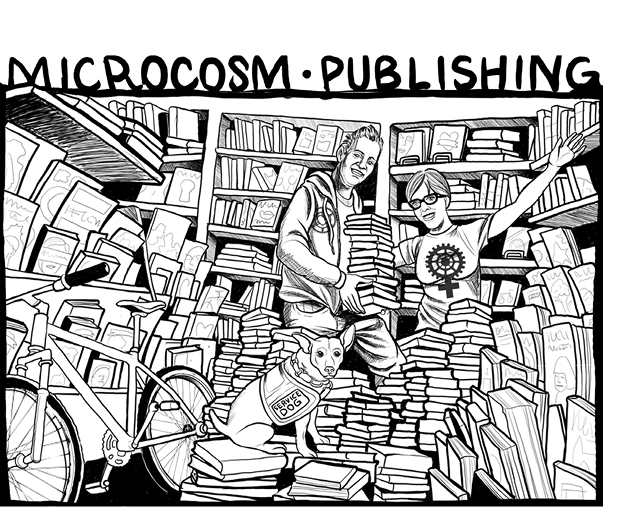Unfuck YOur Grief
Using Science to Heal Yourself and Support Others
2022 Faith G Harper, LPC-S, ACS, ACN
This edition Microcosm Publishing 2022
First edition - 5,000 copies - August 30, 2022
eBook ISBN 9781648410871
A small portion of this work was originally published in 2018 as This is Your Brain on Grief
This is Microcosm #282
Edited by Elly Blue
Illustrated by River Katz
For a catalog, write or visit:
Microcosm Publishing
2752 N Williams Ave.
Portland, OR 97227
https://microcosm.pub/Grief
Did you know that you can buy our books directly from us at sliding scale rates? Support a small, independent publisher and pay less than Amazons price at www.Microcosm.Pub
Microcosm Publishing is Portlands most diversified publishing house and distributor with a focus on the colorful, authentic, and empowering. Our books and zines have put your power in your hands since 1996, equipping readers to make positive changes in their lives and in the world around them. Microcosm emphasizes skill-building, showing hidden histories, and fostering creativity through challenging conventional publishing wisdom with books and bookettes about DIY skills, food, bicycling, gender, self-care, and social justice. What was once a distro and record label was started by Joe Biel in his bedroom and has become among the oldest independent publishing houses in Portland, OR. We are a politically moderate, centrist publisher in a world that has inched to the right for the past 80 years.
Global labor conditions are bad, and our roots in industrial Cleveland in the 70s and 80s made us appreciate the need to treat workers right. Therefore, our books are MADE IN THE USA.
Contents
Introduction
Grief First Aid
what is Grief?
Causes of Grief
Types of Grief
This is your brain (and body) on Grief
Symptoms of Grief
Symptoms of Grief in Children
When Grief Gets Stuck: Prolonged Grief
Trauma and Grief
Is It Grief or Depression? Or Can It Be Both?
Burnout, Stress, and Grief
Grief and Physical Health
Your Own Grief and Mourning Process
The Four Tasks of Grief
Milestones and Derailers of Healing
Self-Care Work for Grief
Therapy and Other Supports For Grief
Would You Like Me to Ask How You Are Doing Today?
Supporting Loved Ones Who Grieve
The Platitude Bullshit People Say That Doesnt Help
What to Do and Say
Supporting Grieving Kiddos
Dear Auntie Faith
Conclusion
Grief Resources
After the Death of a Loved One
When a Loved One Is Dying
Supporting a Grieving or Struggling Loved One
Living With Chronic Illness
Other Supportive Resources Around Grief Topics
that Tend to Be Ignored
Resources for Helping Professionals
Crisis, Terrorism, and Disaster Mental Health Resources
References

Introduction
G rief is the fundamental process of learning to live with loss. A relationship lost or fundamentally altered. A letting go of what we expected life to be. In her book How Can I Help? June Cerza Kolf notes the statistic that the number one fear experienced by human beings is the fear of abandonment. C. S. Lewis, in his book in A Grief Observed stated:
No one ever told me that grief is so much like fear.
Grief is a realization of the certainty of abandonment.
We dont really talk much about grief. It scares us shitless. We fear that discussing it will somehow invoke it. While we know at an intellectual level that abandonment is unavoidable throughout our human existence on the planet, it still knocks us sideways when it happens.
When we discuss grief, our first thought is always of death. But grief is the experience of any kind of loss, any type of abandonment in our lives. Grief can come with the loss of a job, the loss of a relationship (through any means, not just death), or the loss of a way of life we have come to know and expect. We can grieve changes even if they are happy ones. Getting married can be an amazing thing, but we may still grieve the loss of our single days. Becoming an adult is something we all looked forward to, until that moment we had to grieve the freedom of childhood and the ability to hand over decisions to someone else.
Humans have learned to exert so much control over our lives and our environments to the point that it is now our cultural expectation to do so. Possess, control, exert authority and will over our environments. In so many instances we can manage the temperature of our environments. The pain in our bodies. The color of the hair on our heads. Our cultural expectation is to possess and control, although the reality that neither are really possible. We dont have many systems in place to process that which we cant control. We pay lip service to the tenacity of the human spirit and our capacity for resilience, but dont talk about what it takes to get there.
Heres the trick. All that stoic, stiff-upper-lip nonsense? Its just that: nonsense. Resilience requires space for sorrow. Grief. Processing. Understanding what the world will be now versus what it was before. And thats what this book is about. How to move through that process. How to get moving again when it gets sticky. How to support others in their movement. Not fixing anything. Because nothing is broken.
I will talk a lot about death in this book. That is the big and obvious example of grief and is the one we seem the most surrounded by, especially now. It is also the topic the grief research focuses on the most. But that doesnt mean anything else you may be grieving is less valid and worthy of care. Maybe you are grieving a birth parent you never got to know, your gender not matching your birth assignment, or life in a pain-free body. Maybe youre grieving the horrific violence we continue to bear witness to day in and day out in our society and our seeming incapacity to make anything better. My hope is that you find something in this book that helps you. And because grief is so personal and specific, the last third of this book is composed of advice columns where I answer questions that folks have sent in about their grieving.
Also, I am looking at grief from the perspective of a therapist trained in helping with grief, clinical researcher, and person who has grieved a lot. I am going to talk about trauma, depression, stress, burnout and those other mental health issues that often coincide with grief, or get confused with grief as well. But thats not just for my clinician people . I keep getting a lot of feedback from my non-clinical readers that this information helps them not just understand themselves but advocate for their own care with their treatment providers. Keep being a tenacious client about your own care.
But no matter your experience, I hope this book helps you find ways to hold your grief for what it is: Another expression of love. A love for something that is lost, but wont be forgotten.
Grief First Aid
If youre coming to this book fresh out of a crisis, deeply grieving, here are some basics that I like to share right off the bat. You will see these themes time and again throughout the book. But here they are, simply stated and concrete as pavement for you to copy into your journal, tape to your mirror, turn into a mantra, or whatever you need to do to center yourself and allow yourself the bereavement experience you need right now.


